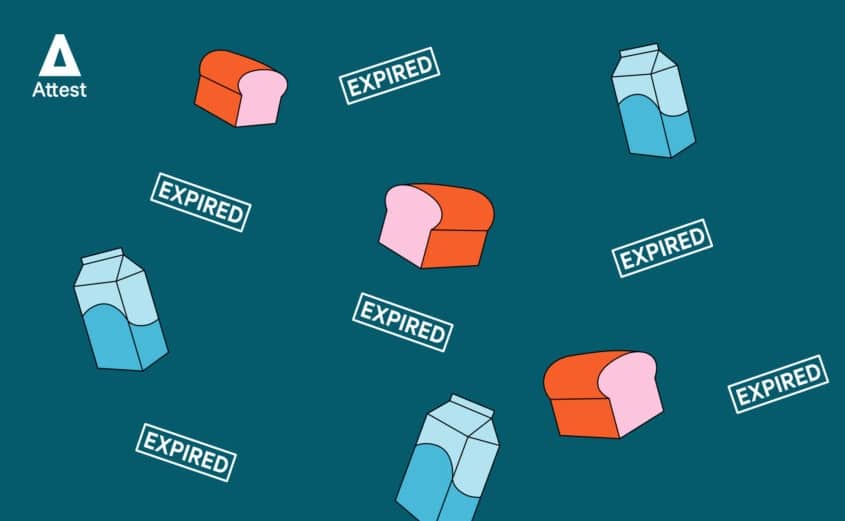
Sure, the date stamped on the milk carton may indicate it’s time to toss it, but it still seems fine. The bread is out of date, but it still looks good enough that you can put off a trip to the store to buy more.
Using coupons and looking for deals is a time-tested strategy to save money. Buying in bulk or opting for less-expensive store brands is another popular option. But lately, shoppers who are really looking to save money on their groceries are relaxing their standards when it comes to expiration dates.
A new report from the consumer research company Attest has found that more Americans are using, instead of tossing, food and drink products that are past their best-by dates. They’re also buying grocery items that are discounted because their expiration date is fast approaching.
Hanging onto “gently-expired,” but safe-to-eat, food has long been recommended to help reduce food waste. But with food prices on the rise, the Attest survey reveals that more shoppers are doing so not for altruistic reasons, but to save money.
Nearly half of all Americans surveyed said they sometimes eat food items after their expiration date, with 17% of those saying they’ve started to do so only recently. 38% go so far as to remove “bad parts” from food so the rest can be eaten, with 15% of those saying they’ve just recently started to do so. This suggests, Attest says, that “inflation is leading people to reassess what’s safe to eat.”
Consumers are also reassessing date labels while shopping, especially if they can save money by doing so. 57% say they’ve purchased reduced-price food that’s close to expiring, with 24% of those saying they’ve just recently started doing so. Others are turning to canned and frozen foods, reducing their spending on fresh meat and produce that spoils faster.
“There’s little science behind expiration dates,” Attest points out, noting that many foods are perfectly safe to eat beyond the date printed on the package. When asked which “expired” food products they’d eat if they still looked, smelled and tasted fine, roughly half said packaged foods like potato chips, cereal and cookies. Among fresh foods, more than a third said they would still eat bread after it had expired, with less than a quarter saying so about milk and only 17% willing to eat expired meat.
Older shoppers are more likely to use their own judgment about expiration dates, while younger shoppers are more likely to throw out expired foods. “Perhaps we can conclude that those with more life experience, who understand how to identify what is and what isn’t safe to eat, are less likely to rely on expiration dates and subsequently waste less food,” Attest said.
Grocery industry organizations and advocacy groups opposed to food waste have long complained about confusing “Use By” and “Best By” date labels that prompt many consumers to throw away food that’s still safe to eat. Nowadays, cost-conscious shoppers are more likely to realize that throwing away food is like throwing away money. So they’re taking it upon themselves to decide whether to stick to the advice on date labels, or make their own decisions about what’s safe to eat.
Overall, “despite the belt-tightening happening across America,” the Attest report noted, “we’re still letting food go to waste.” Its survey found that the average consumer throws away three partially-eaten or uneaten groceries every week. So shoppers are becoming much more date-conscious. An overwhelming 89% of survey respondents – including 20% who’ve just started doing so recently – said they check items’ expiration dates before making a purchase, to ensure a long shelf life once they bring the items home.
So you can switch to cheaper brands, shop at less-expensive stores, or opt for cheaper food items to save money. Or you can keep an eye out for clearance stickers on soon-to-expire products, or just hang onto the food you already have – because after all, the cheapest groceries are the ones you don’t have to buy.
Image source: Attest











Some stores vary how they do dates as well.
For example, a local chain of convenience/dairy stores puts shorter dates on their milk than most stores do.
They do that so that stuff doesn’t sit on their shelves (they pull what is closer to the date and either use it for things like coffee or milkshakes, or donate it to a local food pantry).
Since that is well known (they don’t hide it from customers), people also know that they can continue using the milk items a bit longer than they are dated for without it going bad as there is “built in” extra time on them.